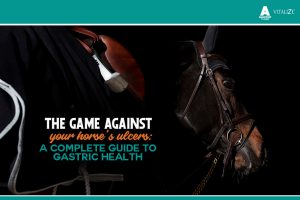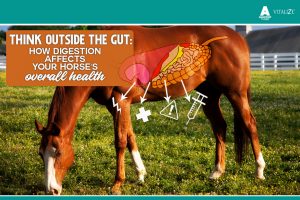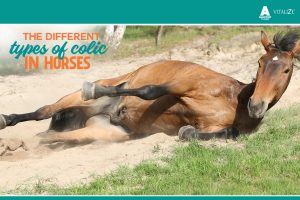Gastric health is achieved when the stomach is free of disease and discomfort. Unfortunately, in performance horses the incidence of gastric discomfort is high. The horse’s stomach continuously secretes hydrochloric acid throughout the day and night, regardless if feed has been ingested. High acid in the stomach, especially in an empty stomach, predisposes the horse […]
Category: Digestive Health
Think Outside the Gut: How Digestion Affects Your Horse’s Overall Health
Gut health affects many aspects of equine wellness. The most intuitive, of course, is digestion and absorption of feed. However, the gut truly plays a role in almost all facets of health and well-being. Take immunity for example. The gut is paramount to having a healthy and responsive immune system. In fact, over 70% of […]
Emergency Steps to Take if Your Horse is Colicking
According to the American Association of Equine Practitioners (AAEP), for every 100 horses, there will be 4.2 colic episodes each year. From these incidents, 1.2% will be surgical, and 11% will be fatal. That’s right, 11% will lead to death. What does this mean to you, the horse owner? Colic is not something to be […]
The Different Types of Colic in Horses
Colic in horses is especially challenging to diagnose because, like humans, there can be many different causes for the same stomach ache. Did I eat too many nachos? A virus? Food poisoning? Gas? Indigestion? With horses, the word “colic” simply means “digestive upset,” so when your horse starts looking at his or her sides uncomfortably […]



